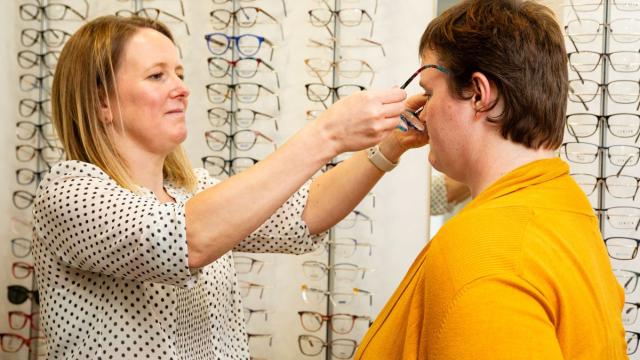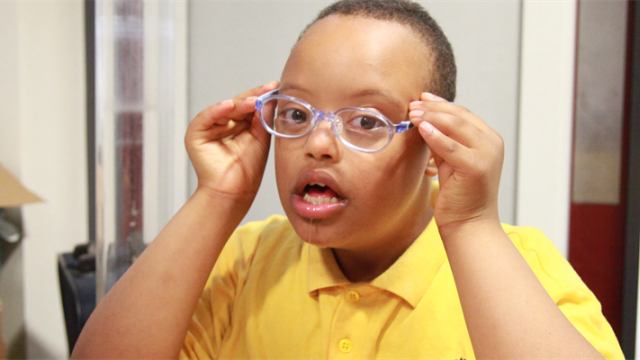People with Down's syndrome (easy read)
Advice on looking after your eyes for people with Down's syndrome.
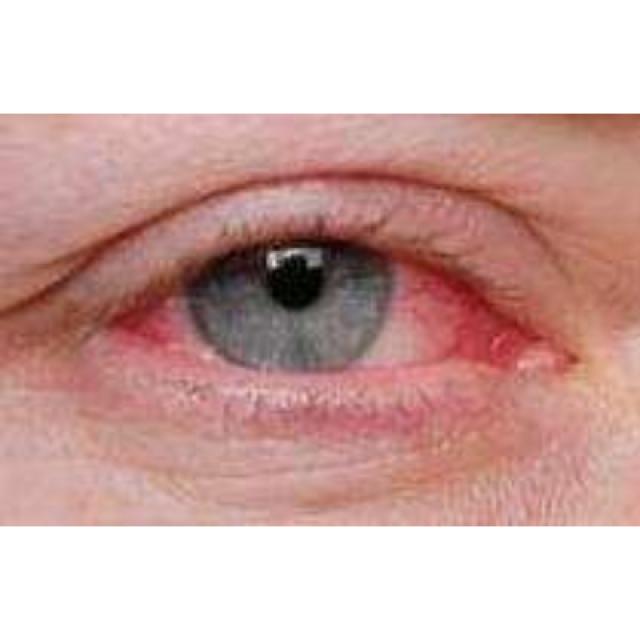
Lots of people with Down’s syndrome will have eye problems.

This factsheet will give people with Down’s syndrome information about eye care.
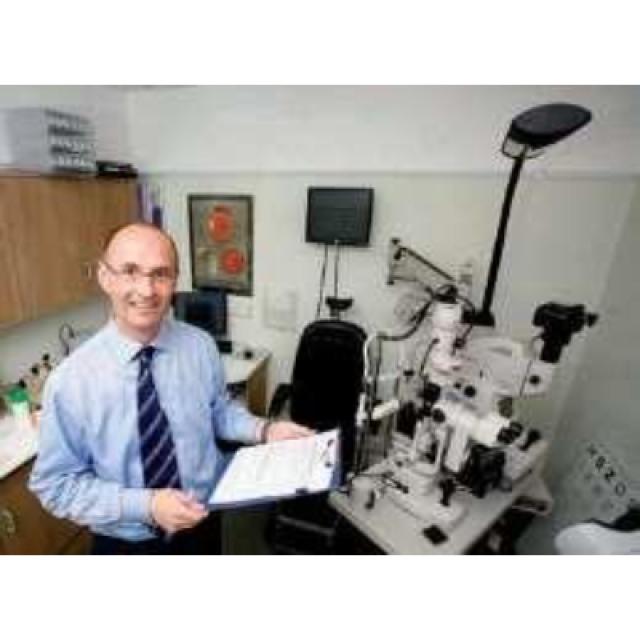
Opticians test your eyes.
They are also called optometrists.
We call them opticians in this factsheet.
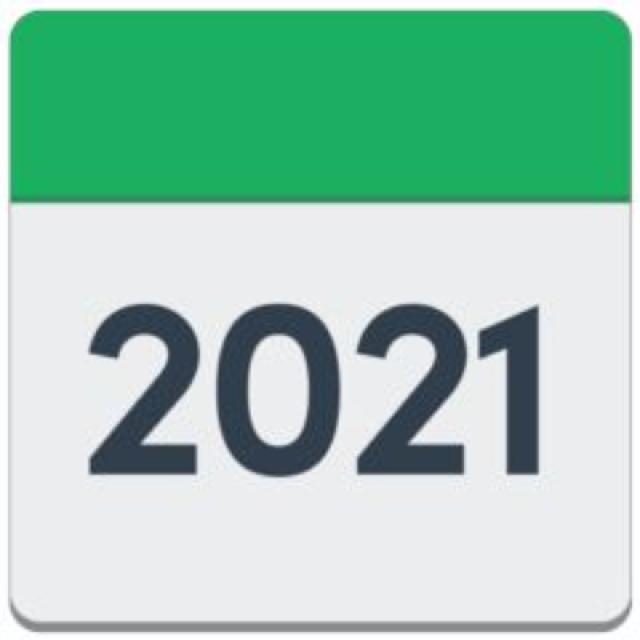
You should have an eye test every year.

Everyone can have their eyes checked.
Having your eyes checked is called an eye examination, sight test or eye test.
We will call it an eye test in this factsheet.
You don’t need to read or write to have an eye test.

An eye test can find out if your eyes are healthy.
The optician will check for health problems like diabetes.

You may have problems seeing things clearly.

You may need glasses to see things clearly.
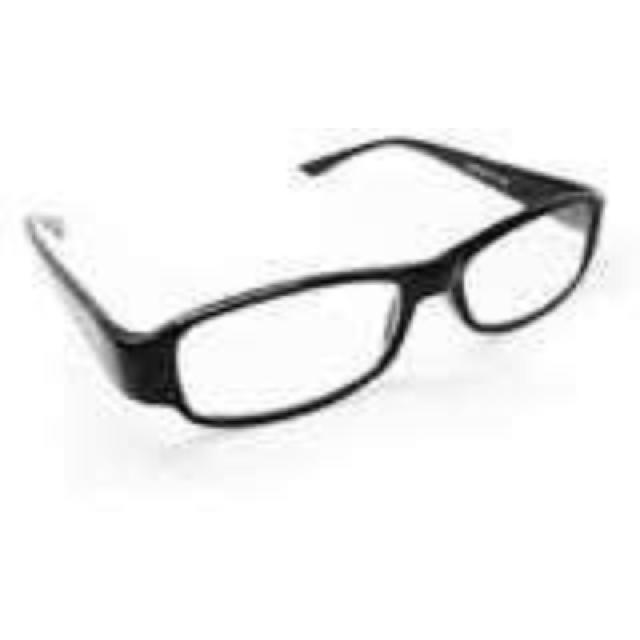
The optician will check your eyesight and tell you if you need new glasses.
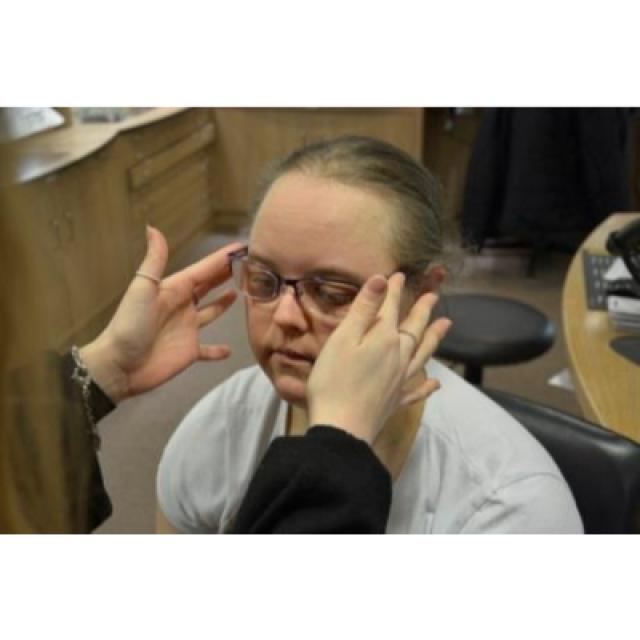
When choosing your glasses, ask if you can see a dispensing optician.
A dispensing optician has extra training to help choose and fit glasses.

Everybody needs frames that fit well and are comfortable.
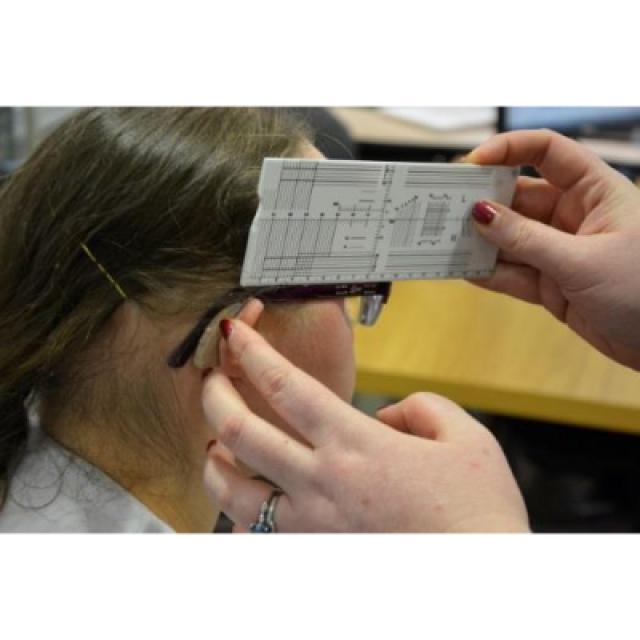
If you need glasses, the optician will measure your face to check your new glasses fit well.

Your glasses should rest on your nose and fit well over your ears.
You should be looking through the centre of the lens.

There are lots of frames that are very strong or very thin or flexible.
These frames might fit your face better.
You can ask your optician about this.
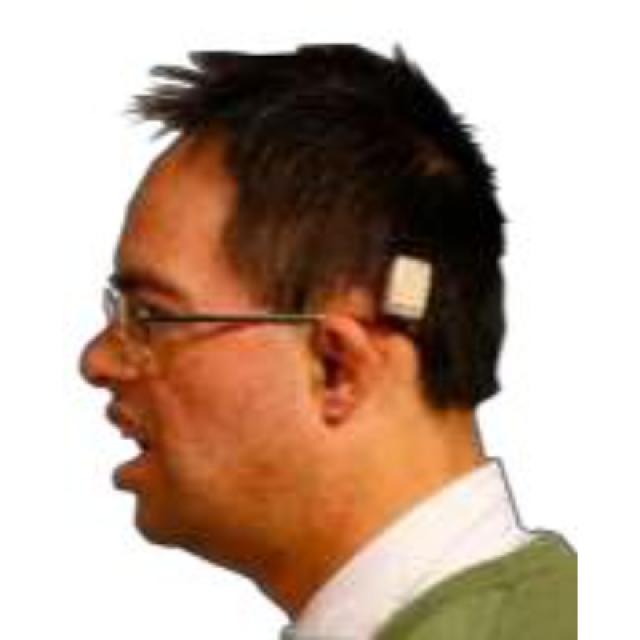
If you wear a hearing aid your glasses should fit comfortably over your ear and hearing aid.

Make sure you can see through the clear lens of your glasses.

It can be easy to notice when glasses do not fit properly.
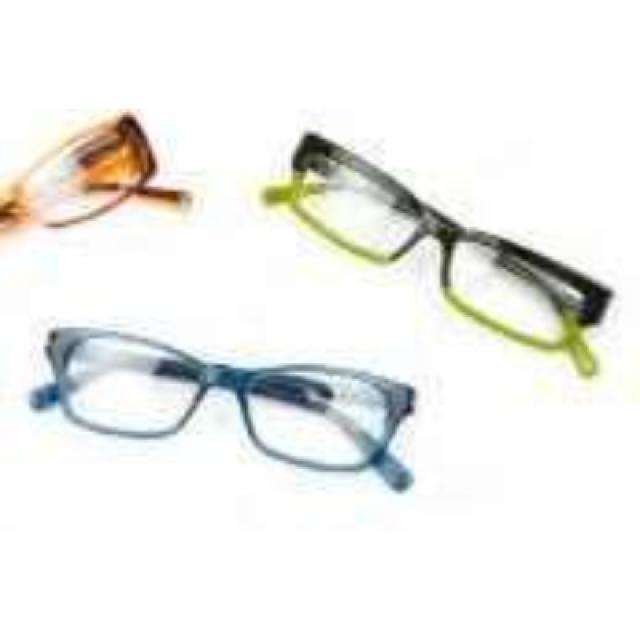
There are different types of glasses to choose from.
You may need 2 pairs of glasses.
One pair for seeing things close to you, and one pair for seeing things further away.
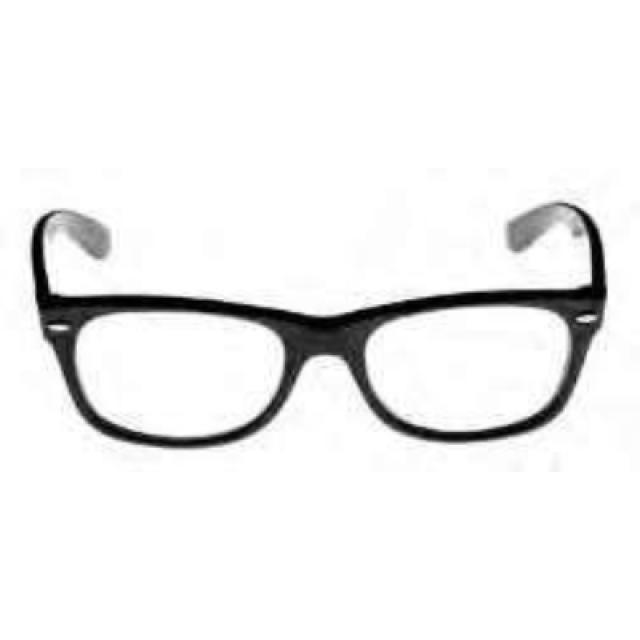
Bifocals or varifocals are glasses that have special lenses.
These lenses will help you see further away and close to you.
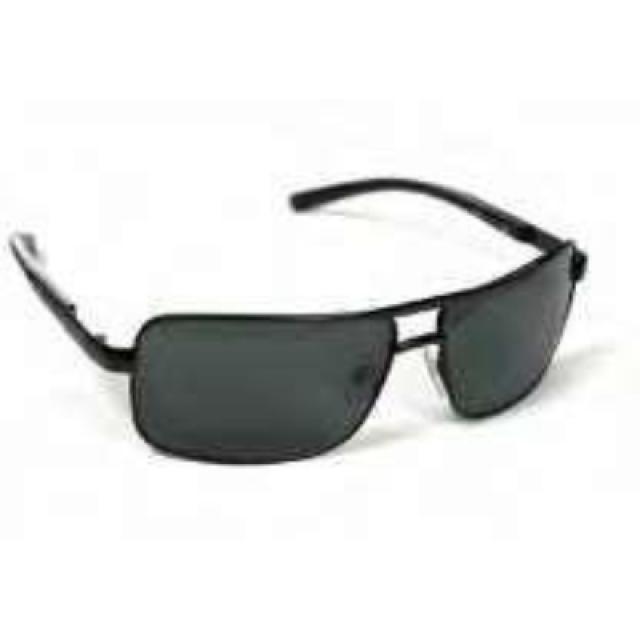
You can get glasses that help you see clearly that are also sunglasses.
Some glasses have lenses that go dark when the sun is out.
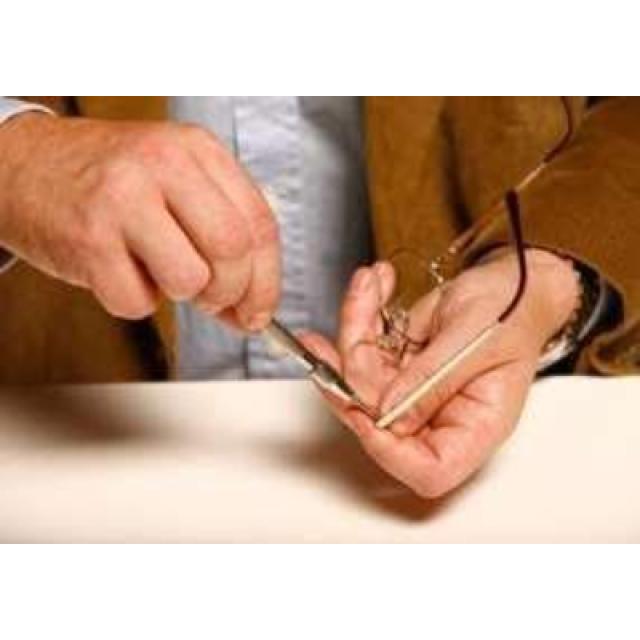
Your optician can help you look after your glasses.
You can take your glasses back to your optician if they are not comfortable or you need to get them fixed.
They often do small repairs for free.

People with Down’s syndrome are more likely to have problems with their eyes.
Here are some of the eye problems:
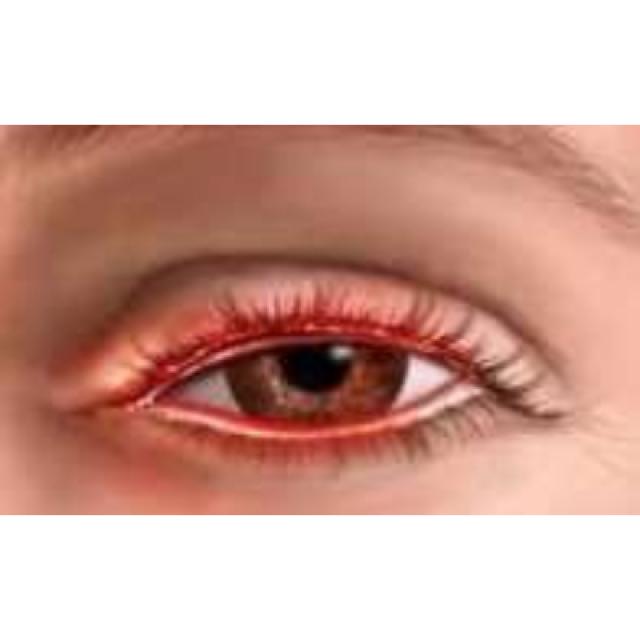
Blepharitis
Some people with Down’s syndrome get sore, crusty and itchy eye lids.
This is called blepharitis.
It can be painful and irritating.
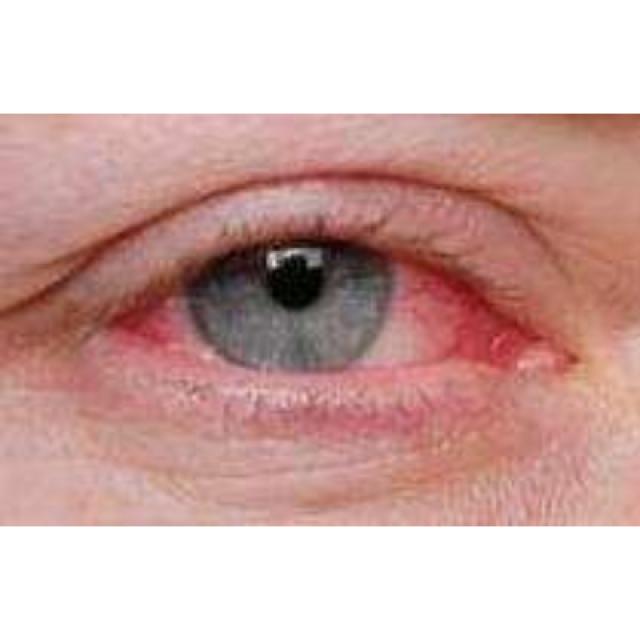
Conjunctivitis
Sometimes people may get a sore and itchy eye.
This is called conjunctivitis.
It can be painful and irritating.

Ask your optician, chemist or GP for help if you get sore eyes.
Blepharitis and conjunctivitis can make you want to rub your eyes a lot. This can make your eye worse.
Hay fever and other allergies may make your eyes itch too.
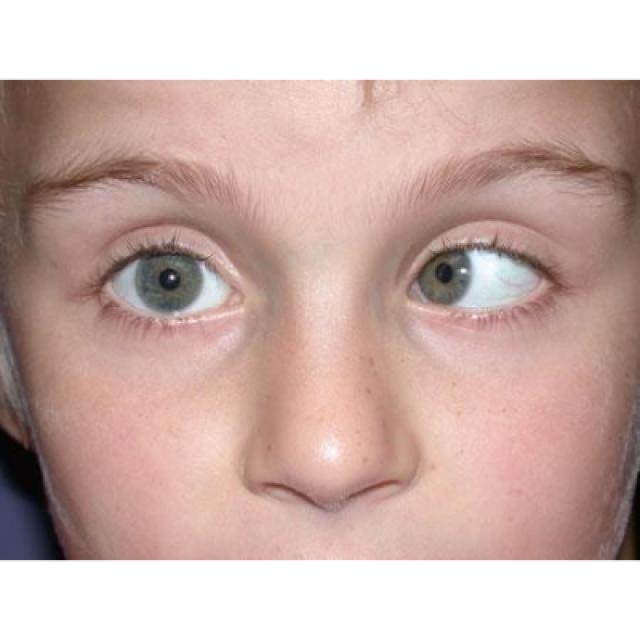
A Squint
A squint is when your eyes do not move together when you are looking at something.
Glasses can help you if you have a squint.
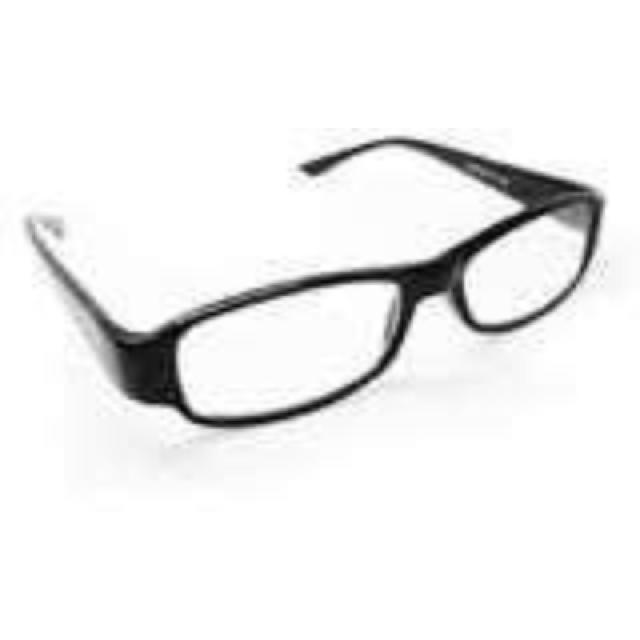
If you have a squint it’s important to wear your glasses.
Talk to your optician if your squint gets worse.
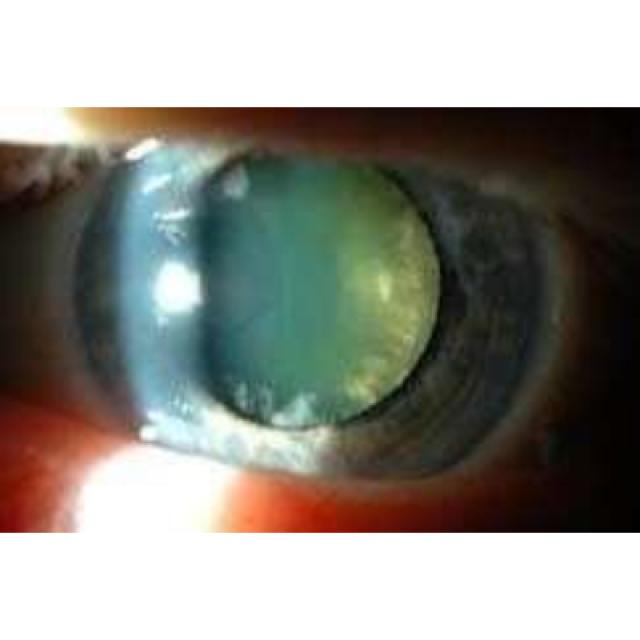
A cataract is when the lens in your eye goes cloudy.
You can get a cataract at any age.
You can have a cataract in one eye or both eyes.
Having a cataract makes your eyesight worse.

People with Down’s syndrome are more likely to have cataracts at a younger age.

You or your supporters may notice a change in your eyesight.
You or your supporters may notice if your eye is getting cloudy.
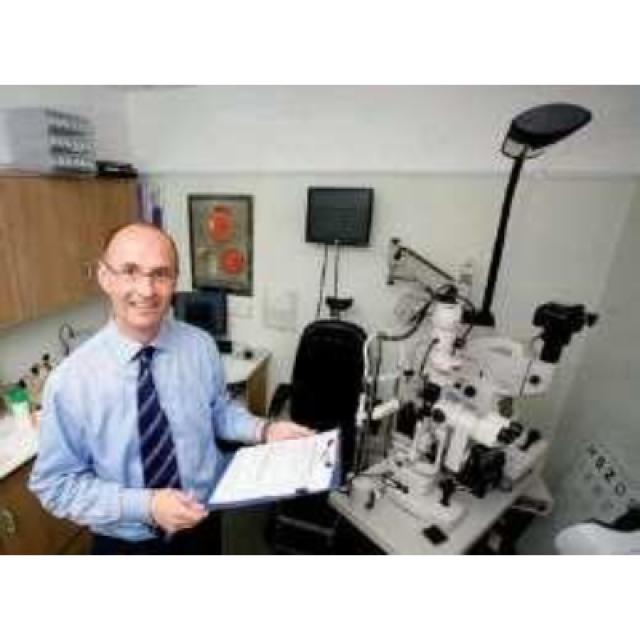
Tell your optician if you think you might have a cataract.
Your optician may arrange an appointment for you at the hospital.
You can have an operation to fix your cataracts.
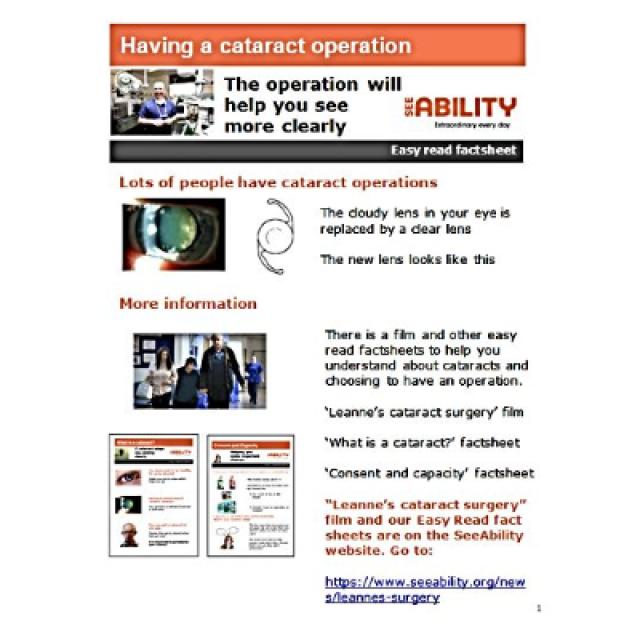
We have two easy read resources on cataracts:
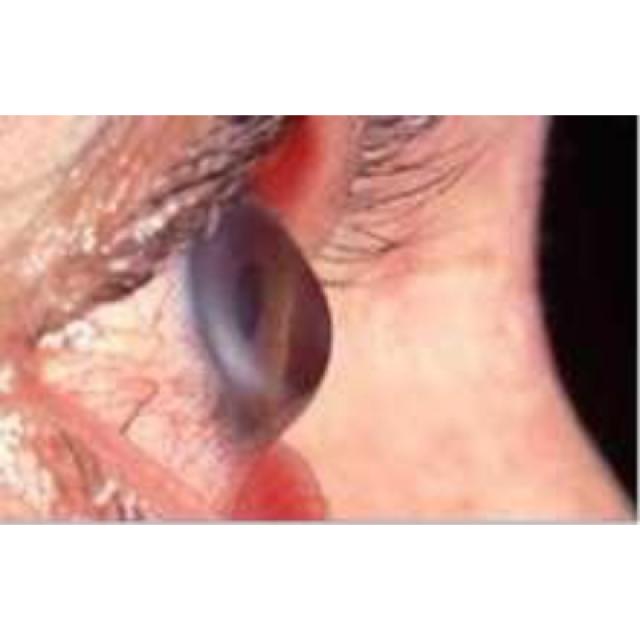
Some people, with Down’s syndrome have keratoconus.
It looks like the eye in this photo.

If you have keratoconus:
Your eyesight can get worse quite quickly.

You may find it hard to see in bright light.

Your eye may be itchy.
Try not to poke or rub your eye.
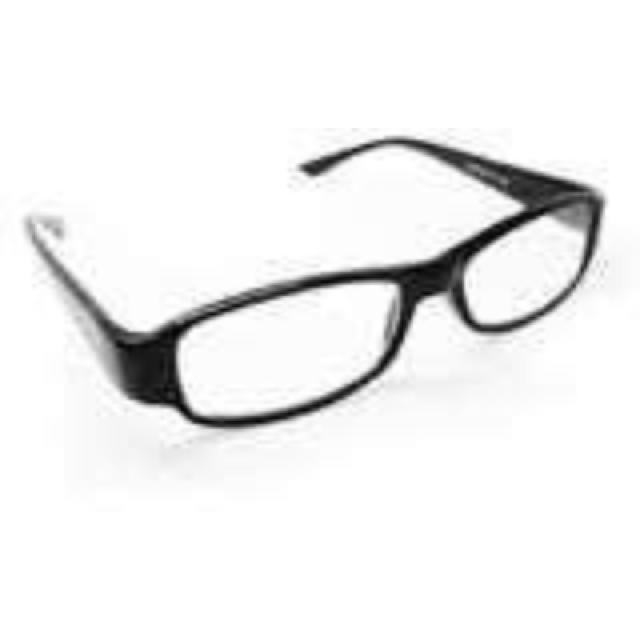
Wearing glasses can help.
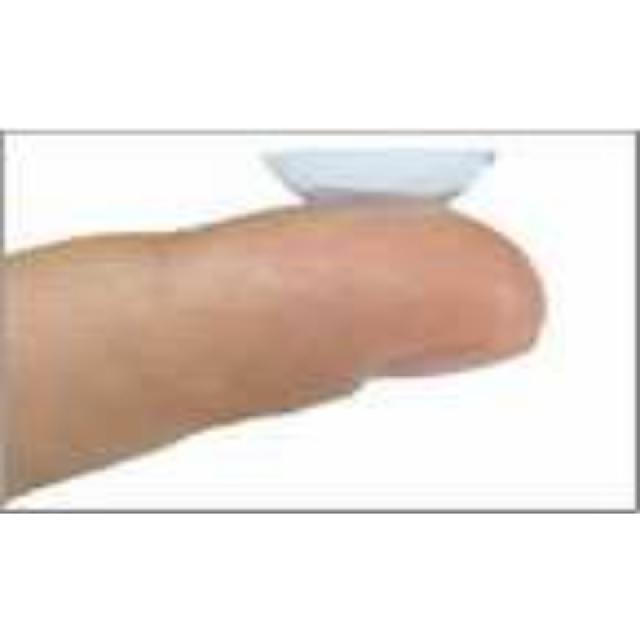
Wearing contact lenses can help.
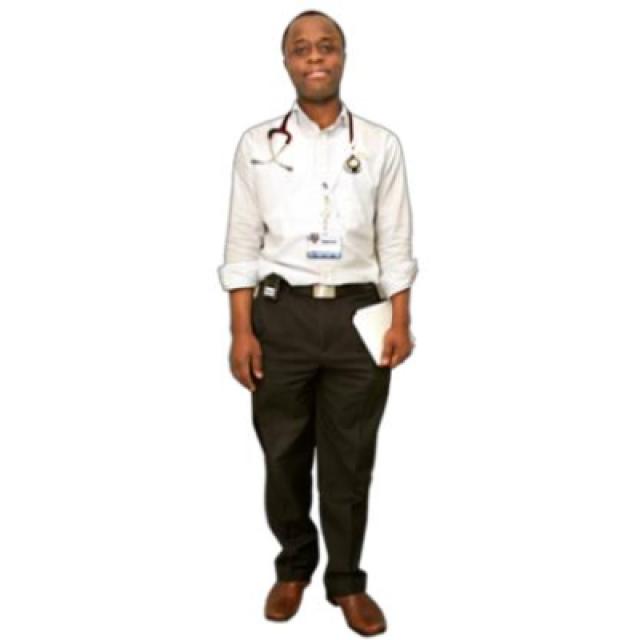
Your optician will arrange an appointment for you at the hospital.
Your eye doctor may tell you about other ways to look after your eyes.


